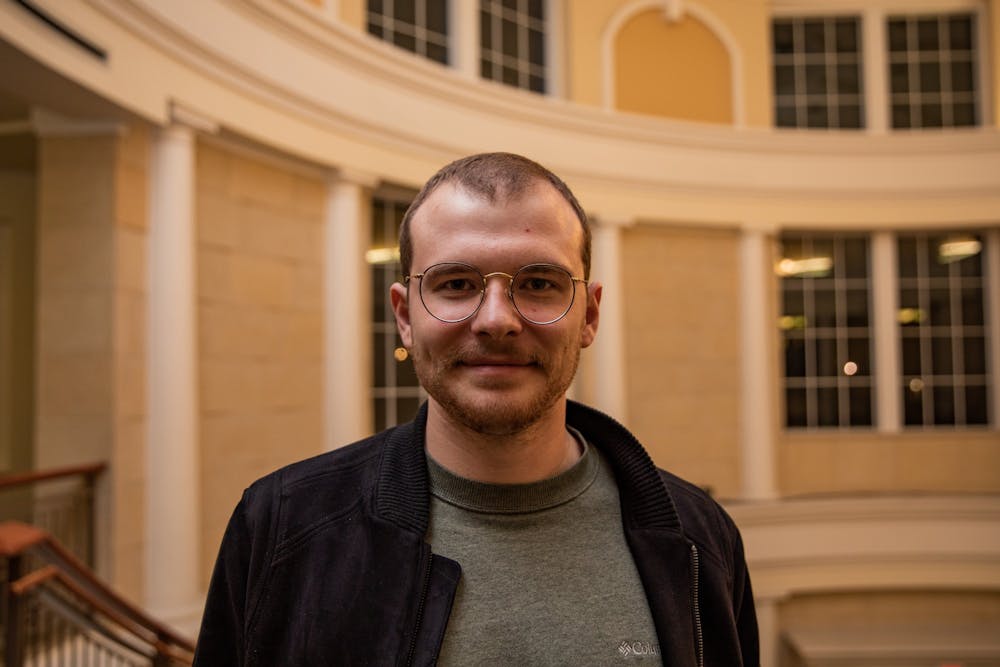The COVID-19 pandemic has engendered a crash in commodity prices, causing Ohio University’s endowment fund to have a 0 percent commodity value in its investment portfolio, according to a report from The Post earlier this year. In economics, commodities refer to bulk goods and raw materials used to produce consumer products. One primary (and sinister) classification of commodities is fossil fuels – such regular villains as oil, natural gas, and coal, whose mining and burning is a great contributor to climate change.
While OU may have no investments in commodities at this time, this has not always been the case: “The university didn’t provide data on its past investments into commodities, but it’s safe to assume that at one point, the number was above 0,” reads The Post report. Indeed, another report from The Post in 2017 found that OU endowment investments were linked to tobacco, private prisons, and – you guessed it – oil. Investments in these shady sectors happen when the company managing OU endowment funds “puts big chunks of OU’s endowment money into pools of investment dollars called mutual funds. Other money managers, who choose what stocks or bonds to buy, run those funds.”
And voila – just like that, OU puts endowment money into some of the most deplorable economic actors of our time. Of course, going through a third-party investment company has allowed OU to distance itself from the destination of its investments: “Within our current investment practices, we’re not in a position to effectively filter that out,” Candice Casto, Assistant Vice President of Foundation Finance and Administration for OU foundation operations, told The Post in 2017, specifically referring to tobacco companies. We can only assume that OU’s position to oil and other fossil fuel investments is similarly defeatist.
To my mind, however, that “it’s out of our hands” position is much too convenient. Beyond that, the cases of many other universities have shown that higher education institutions really can control how their endowments are spent: the University of California, Georgetown University, and Hampshire College are just a few who have put an end to fossil fuel investment. Just in the past week, Harvard University has also taken steps to divest its endowment from fossil fuels. And in the UK, more than half of universities have committed to divestment. In short, OU’s claims that there is not much that can be done should be taken as what they are: false.
Indeed, my call for OU to divest its endowment from fossil fuels is not an isolated one; rather, it is part of a much larger fossil fuel divestment movement. “Institutions of higher education are charged with preparing their students for lifetimes of work and service. But if those institutions are invested in fossil fuel companies, then students’ educations are being subsidized by investments that guarantee they won't have much of a planet on which to make use of their degrees,” says Fossil Free on its Fossil Fuel Divestment page. On that page, 381 campaigns have been started to galvanize universities to divest from fossil fuels.
In fact, Ohio University had one such campaign – but it petered out, as the most recent of its signatures came three years ago. Such a campaign needs to be revived because, even though OU may not have any direct commodity investments now, there is nothing to stop that from happening again in the future. In other words, instead of having no investment in fossil fuels because of COVID-19 or other random market fluctuations, that should be the case because of cold, hard policy.
This is not some lofty, unattainable goal – it is feasible, and it is necessary. One possible solution outlined in the 2017 article from The Post is to select “funds that apply ethical considerations, like how companies affect society or how a company treats its employees. That method is called ESG or SRI investing.” Apparently, OU even had talks with one investment company about adopting ESG investing, but the talks amounted to little. It is time they are resumed. Realistically, they have to be: fossil fuels are killing our planet, and OU – a university that likes to claim meaningful sustainability efforts – has no reason to be investing in them. In fact, this could be an opportunity for OU: instead of allowing its endowment to be invested in fossil fuels, it could make sure to invest in the sustainable initiatives and renewable energy that we so need to survive.
At OU, endowment “allocation can enhance financial aid and scholarship packages; encourage research and creative activity; and inspire program innovation.” It is ironic, then, that we as students are supposed to acquiescently benefit from money that has “smog” on its hands and then accept it when we are told little can be done. People saying, “That’s not really our problem,” or, “There’s not much we can do about it,” is the exact sort of thinking that has abetted the climate crisis for so long.
Enough is enough. It is time to demand that OU takes responsibility for the investment of its endowment. Whether by pursuing the strategy outlined above or by following the example of numerous other universities, it is time for OU to act.
Sam Smith is a rising senior studying geography at Ohio University. Please note that the views and opinions of the columnists do not reflect those of The Post. Want to talk more about it? Let Sam know by tweeting him @sambobsmith_.






